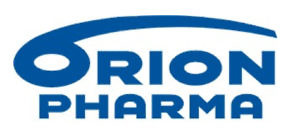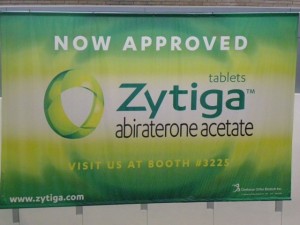 I am off to Washington DC tomorrow for the annual meeting of the American Urological Association (AUA).
I am off to Washington DC tomorrow for the annual meeting of the American Urological Association (AUA).
If you are not able to attend, then you can follow the Twitter coverage on Pharma Strategy Blog where Sally Church (@MaverickNY) will be aggregating the tweets. The conference hashtag is #AUA2011. I also expect to be live-tweeting from the conference.

Like many medical conferences in the United States, the AUA meeting kicks off with independent continuing medical education (CME) satellite symposia on topics of interest.
As a lawyer who has to pay for his own continuing legal education (CLE) credits, I have to confess that I am somewhat cynical that other professionals such as physicians expect to have their CME paid for through free industry-sponsored events. These symposia are certainly not cheap to run.
However, compared with Europe, CME events in the United States are usually well-produced and fair balanced, albeit with a topical theme that obviously relates to the sponsor’s interest.
The two satellite symposia that I will be attending at AUA are Friday evening’s Amgen supported “Managing Skeletal-Related Events in Patients with Prostate Cancer” and the Saturday morning Astellas/Medivation supported “Reason for Hope: Key Advances in the Management of Castration-Resistant Prostate Cancer.”
While at Quintiles, I was lead CRA/European Project Manager for the phase III trial trial of risedronate in elderly women at risk of hip fracture, so I am interested in bone related treatments, and am looking forward to hearing more about denosumab (Xgeva®) and its impact on skeletal related events (SRE).
Oliver Sartor (Tulane) raises some excellent questions in a recent paper published in the Asian Journal of Andrology, “if a patient has a SRE, does it affect the way a patient feels, functions or survives?”
Sartor argues that a better definition of the benefit a drug has on SRE’s would be “a reduction in pain, analgesic consumption or improvement in quality of life (QoL)” instead of the current “feel, function or survive” standard.
He notes that patients with bone-metastatic castrate resistant prostate cancer (CRPC) have a limited life expectancy, so that QoL is a key issue. “An asymptomatic event linked to a future adverse event is less meaningful in a patient with metastatic CRPC.”
Sartor concluded his paper by saying:
“The lack of effect of bisphosphonates or denosumab on patient-reported outcomes including QoL, pain or analgesic consumption continues to be a disappointment for this entire field.”
When we talk about a reduction in SRE’s what does this really mean for the patient? I look forward to hearing what the expert panel at Friday evening’s symposia on this topic and hope it will be addressed.
Moving on to the other satellite symposium, supported by Medivation/Astellas, that I will be attending early on Saturday morning. I expect this symposium will focus on new drugs in the pipeline such as MDV3011 and ARN-509 that target the androgen receptor. Hopefully they will also discuss other therapeutics, such as the recently approved abiraterone acetate (Zytiga®), as well TAK-700, which has a similar mechanism of action to abiraterone, i.e. they both inhibit CYP17 and testosterone production.
I’m looking forward to hearing what the expert panel has to say about the need to take prednisone with abiraterone, and whether there are any issues surrounding long-term usage if abiraterone ends up being used earlier in the pre-chemotherapy setting. Updated data from the COU-AA-301 trial will be presented at AUA on Monday, and I expect a lot of interest from urologists in this.
The satellite symposia are set to be a good warm up act to the start of the main AUA meeting that runs from May 14 to 19 in Washington DC. I’ll be writing more from the AUA 2011 over the next few days.
 Sartor, O. (2011). Denosumab in bone-metastatic prostate cancer: known effects on skeletal-related events but unknown effects on quality of life Asian Journal of Andrology DOI: 10.1038/aja.2011.33
Sartor, O. (2011). Denosumab in bone-metastatic prostate cancer: known effects on skeletal-related events but unknown effects on quality of life Asian Journal of Andrology DOI: 10.1038/aja.2011.33


 Prostate cancer is the second leading cause of cancer death in men, so it was good news this morning when Medivation & Astellas issued a
Prostate cancer is the second leading cause of cancer death in men, so it was good news this morning when Medivation & Astellas issued a  The market for prostate cancer therapies is set to expand from $1 billion currently to $5 billion by 2015, according to analysts reported by
The market for prostate cancer therapies is set to expand from $1 billion currently to $5 billion by 2015, according to analysts reported by 
